 W
WAnna Laetitia Barbauld was a prominent English poet, essayist, literary critic, editor, and author of children's literature.
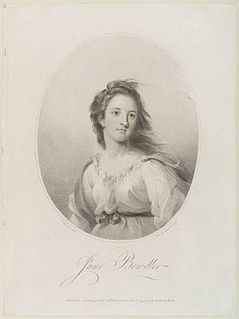 W
WJane Bowdler (1743–1784) was an English poet and essayist. Her work gained longstanding popularity after her death.
 W
WMaria Branwell was the mother of British writers Emily Brontë, Anne Brontë and Charlotte Brontë, and of their brother, Branwell Brontë, who was a poet and painter.
 W
WBrigid Antonia Brophy, Lady Levey was a British novelist, critic, and campaigner for social reforms, including the rights of authors and animal rights. Among her novels was Hackenfeller's Ape (1953); among her critical studies were Mozart the Dramatist and Prancing Novelist: A Defence of Fiction ... In Praise of Ronald Firbank (1973). In the Dictionary of Literary Biography: British Novelists since 1960, S. J. Newman described her as "one of the oddest, most brilliant, and most enduring of [the] 1960s symptoms."
 W
WRosina Bulwer Lytton was an Anglo-Irish writer who published fourteen novels, a volume of essays and a volume of letters.
 W
WFrances Burney, also known as Fanny Burney and later as Madame d'Arblay, was an English satirical novelist, diarist and playwright. Born in Lynn Regis, now King's Lynn, England, on 13 June 1752, to the musician Dr Charles Burney (1726–1814) and his first wife, Esther Sleepe Burney (1725–1762), she was the third of her mother's six children. She began her "scribblings" at the age of ten. In 1786–1790 she was an unusual courtier appointment as "Keeper of the Robes" to Charlotte of Mecklenburg-Strelitz, George III's queen. In 1793, aged 41, she married a French exile, General Alexandre D'Arblay. Their only son Alexander was born in 1794. After a long writing career, and travels in which she was stranded in France by warfare for over ten years, she settled in Bath, England, where she died on 6 January 1840. Of her four novels, the first, Evelina (1778), was the most successful, and remains the most highly regarded. Most of her plays remained unperformed in her lifetime. She also wrote a memoir of her father (1832) and many letters and journals, which have been gradually published since 1889.
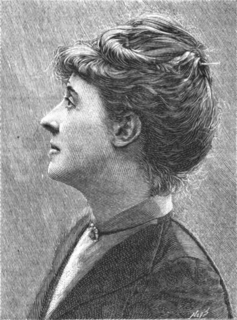 W
WAlice Mona Caird was an English novelist and essayist. Her feminist writings and views sparked controversy in the late 19th century. She was also an advocate for animal rights and civil liberties, and played a part in advancing the interests of the New Woman in the public sphere.
 W
WMargaret Lucas Cavendish, Duchess of Newcastle-upon-Tyne (1623 – 15 December 1673) was an English aristocrat, philosopher, poet, scientist, fiction-writer, and playwright during the 17th century. Born Margaret Lucas, she was the youngest sister of prominent royalists Sir John Lucas and Sir Charles Lucas, who owned the manor of St. John's Abbey in Colchester. She became an attendant of Queen Henrietta Maria and travelled with her into exile in France, living for a time at the court of the young King Louis XIV. She became the second wife of William Cavendish, 1st Duke of Newcastle-upon-Tyne in 1645, when he was a marquess.
 W
WMary Ann Evans, known by her pen name George Eliot, was an English novelist, poet, journalist, translator and one of the leading writers of the Victorian era. She wrote seven novels, Adam Bede (1859), The Mill on the Floss (1860), Silas Marner (1861), Romola (1862–63), Felix Holt, the Radical (1866), Middlemarch (1871–72) and Daniel Deronda (1876). Like Charles Dickens and Thomas Hardy, she emerged from provincial England and most of her works are set there. They are known for their realism, psychological insight, sense of place and detailed depiction of the countryside.
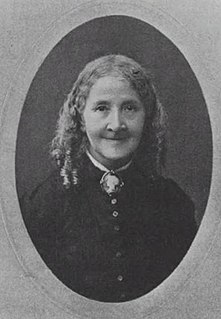 W
WElizabeth Clarke Wolstenholme Elmy (1833–1918) was a life-long campaigner and organiser, significant in the history of women's suffrage in the United Kingdom. She wrote essays and some poetry, using the pseudonyms E and Ignota.
 W
WJane Gomeldon was an English writer, poet and adventurer. Her writing has gained her posthumous recognition as an early feminist.
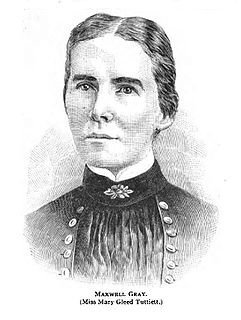 W
WMary Gleed Tuttiett, better known by the pen name Maxwell Gray, was an English novelist and poet best known for her 1886 novel The Silence of Dean Maitland.
 W
WElizabeth Hamilton was a Scottish essayist, poet, satirist and novelist.
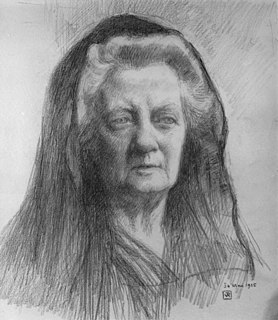 W
WJane Ellen Harrison was a British classical scholar and linguist. Harrison is one of the founders, with Karl Kerenyi and Walter Burkert, of modern studies in Ancient Greek religion and mythology. She applied 19th-century archaeological discoveries to the interpretation of ancient Greek religion in ways that have become standard. She has also been credited with being the first woman to obtain a post in England as a ‘career academic’. Harrison argued for women's suffrage but thought she would never want to vote herself. Ellen Wordsworth Crofts, later second wife of Sir Francis Darwin, was Jane Harrison's best friend from her student days at Newnham, and during the period from 1898 to her death in 1928.
 W
WEliza Haywood, born Elizabeth Fowler, was an English writer, actress and publisher. An increase in interest and recognition of Haywood's literary works began in the 1980s. Described as "prolific even by the standards of a prolific age", Haywood wrote and published over seventy works during her lifetime including fiction, drama, translations, poetry, conduct literature and periodicals. Haywood is a significant figure of the 18th century as one of the important founders of the novel in English. Today she is studied primarily as a novelist.
 W
WVernon Lee was the pseudonym of the British writer Violet Paget. She is remembered today primarily for her supernatural fiction and her work on aesthetics. An early follower of Walter Pater, she wrote over a dozen volumes of essays on art, music, and travel.
 W
WDoris May Lessing was a British-Zimbabwean (Rhodesian) novelist. She was born to British parents in Iran, where she lived until 1925. Her family then moved to Southern Rhodesia, where she remained until moving in 1949 to London, England. Her novels include The Grass Is Singing (1950), the sequence of five novels collectively called Children of Violence (1952–1969), The Golden Notebook (1962), The Good Terrorist (1985), and five novels collectively known as Canopus in Argos: Archives (1979–1983).
 W
WBathsua Reginald Makin was a teacher who contributed to the emerging criticism of woman's position in the domestic and public spheres in 17th-century England. Herself a highly educated woman, Makin was referred to as England's most learned lady, skilled in Greek, Latin, Hebrew, German, Spanish, French and Italian. Makin argued primarily for the equal right of women and girls to obtain an education in an environment or culture that viewed woman as the weaker vessel, subordinated to man and uneducable. She is most famously known for her polemical treatise entitled An Essay To Revive the Ancient Education of Gentlewomen, in Religion, Manners, Arts & Tongues, with an Answer to the Objections against this Way of Education (1673).
 W
WHarriet Martineau was a British social theorist and Whig writer, often cited as the first female sociologist.
 W
WAlice Christiana Gertrude Meynell was a British writer, editor, critic, and suffragist, now remembered mainly as a poet.
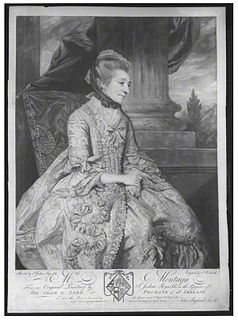 W
WElizabeth Montagu was a British social reformer, patron of the arts, salonnière, literary critic and writer, who helped to organize and lead the Blue Stockings Society. Her parents were both from wealthy families with strong ties to the British peerage and learned life. She was sister to Sarah Scott, author of A Description of Millenium [sic] Hall and the Country Adjacent. She married Edward Montagu, a man with extensive landholdings, to become one of the richer women of her era. She devoted this fortune to fostering English and Scottish literature and to the relief of the poor.
 W
WHannah More was an English religious writer and philanthropist, remembered as a poet and playwright in the circle of Johnson, Reynolds and Garrick, as a writer on moral and religious subjects, and as a practical philanthropist. Born in Bristol, she taught at a school founded there by her father and began writing plays. She became involved with the London literary elite and a leading Bluestocking member. Her later plays and poetry became more evangelical and she joined a group campaigning against the slave trade. In the 1790s she wrote several Cheap Repository Tracts on moral, religious and political topics for distribution to the literate poor. Meanwhile, she broadened her links with schools that she and her sister Martha had founded in rural Somerset. These modelled her strictures on the education of the poor, permitting a limited reading ability but no writing.
 W
WWilla Muir aka Agnes Neill Scott born Willa Anderson was a Scottish novelist, essayist and translator. She was the major part of a translation partnership with her husband, Edwin Muir. She and her husband translated the works of many notable German authors including Franz Kafka. They were given an award in 1958 in their joint names, however Willa recorded in her journal that her husband "only helped".
 W
WCaroline Elizabeth Sarah Norton, Lady Stirling-Maxwell was an English social reformer and author active in the early and mid-nineteenth century. Norton left her husband in 1836, following which he sued her close friend Lord Melbourne, the then Whig Prime Minister, for criminal conversation. The jury threw out the claim, but she was unable to obtain a divorce and was denied access to her three sons. Norton's intense campaigning led to the passing of the Custody of Infants Act 1839, the Matrimonial Causes Act 1857 and the Married Women's Property Act 1870. Norton modelled for the fresco of Justice in the House of Lords by Daniel Maclise, who chose her because she was seen by many as a famous victim of injustice.
 W
WZadie Adeline Smith FRSL is an English novelist, essayist, and short-story writer. Her debut novel, White Teeth (2000), immediately became a best-seller and won a number of awards. She has been a tenured professor in the Creative Writing faculty of New York University since September 2010.
 W
WDame Cicily Isabel Fairfield, known as Rebecca West, or Dame Rebecca West, was a British author, journalist, literary critic, and travel writer. An author who wrote in many genres, West reviewed books for The Times, the New York Herald Tribune, The Sunday Telegraph, and The New Republic, and she was a correspondent for The Bookman. Her major works include Black Lamb and Grey Falcon (1941), on the history and culture of Yugoslavia; A Train of Powder (1955), her coverage of the Nuremberg trials, published originally in The New Yorker; The Meaning of Treason (1949), later The New Meaning of Treason (1964), a study of the trial of the British fascist William Joyce and others; The Return of the Soldier (1918), a modernist World War I novel; and the "Aubrey trilogy" of autobiographical novels, The Fountain Overflows (1956), This Real Night, and Cousin Rosamund (1985). Time called her "indisputably the world's number one woman writer" in 1947. She was made CBE in 1949, and DBE in 1959, in each case, the citation reads: "writer and literary critic". She took the pseudonym "Rebecca West" from the rebellious young heroine in Rosmersholm by Henrik Ibsen. She was a recipient of the Benson Medal.
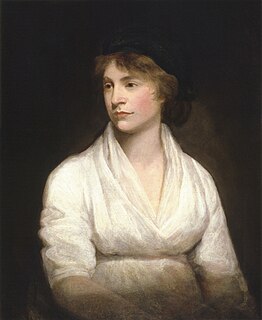 W
WMary Wollstonecraft was an English writer, philosopher, and advocate of women's rights. Until the late 20th century, Wollstonecraft's life, which encompassed several unconventional personal relationships at the time, received more attention than her writing. Today Wollstonecraft is regarded as one of the founding feminist philosophers, and feminists often cite both her life and her works as important influences.
 W
WAdeline Virginia Woolf was an English writer, considered one of the more important modernist 20th century authors and also a pioneer in the use of stream of consciousness as a narrative device.